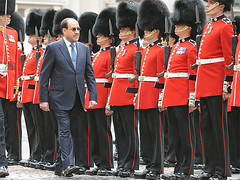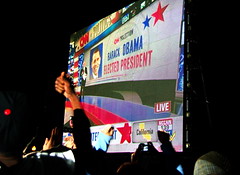ORANGE PARK, Fla. (AP) -- A body found under trash in a landfill is that of 7-year-old Somer Thompson, a north Florida girl who vanished on her walk home from school, authorities said Thursday.
Clay County Sheriff's spokeswoman Mary Justino also said the girl's death was a homicide, though she did not elaborate. Justino confirmed the identification hours after Sheriff Rick Breseler said clothing and a birthmark led authorities to believe they had found the missing girl.
An autopsy was being performed Thursday by the Georgia Bureau of Investigation in Savannah after the body was found near the Florida state line.
Detectives spotted the legs first and found the body partially covered by garbage Wednesday in a Georgia landfill, after investigators followed garbage trucks leaving the neighborhood where the child disappeared Monday.
Somer's father and other family members were "torn up" after hearing the news, aunt Laura Holt said. She hopes authorities will find her niece's killer.
"I don't think they deserve to live," Holt said. "I don't think there's anything worse that a person can do - to kill a child and dump her in the dump like a piece of trash?"
Justino said dozens of investigators would continue to sift through trash from the landfill over the next several days. Detectives had followed nine trucks into the landfill, she said, without specifying what evidence they recovered.
Authorities have not said whether investigators believe the crime was committed by one or more people. Police have questioned more than 70 registered sex offenders in the area, and that process was continuing. Florida Department of Law Enforc! ement re cords show 161 offenders live in a 5-mile radius of Somer's home.
No suspect has been arrested.
"I fear for our community until we bring this person in. This is a heinous crime that's been committed," Beseler said. "And we're going to work as hard as we can to make this community safe."
The sheriff said he told the girl's mother to prepare for the worst, and called her after receiving the news Wednesday night.
"Needless to say, she was absolutely devastated," he said. "It was the hardest phone call I've ever had to make in my life, and I hope I never have to make another one like that."
Beseler credited one of his detectives with suggesting on Tuesday that the landfill be checked. Trucks were scheduled to pick up garbage in Orange Park on Tuesday morning. He said detectives were told to go through the debris looking for evidence as the trucks brought it in.
"Had we not done this tactic, I believe that body would have been buried beneath hundreds of tons of debris, probably would have gone undiscovered forever," he told reporters. Even if the body had been found later, key evidence could have been destroyed or degraded, the sheriff said.
An FBI forensic unit is helping process evidence from the landfill in Folkston, Ga., about 48 miles from where the girl disappeared.
Two deputies stood guard at mother Diena Thompson's home early Thursday morning. It appeared to be full of supporters. An oak tree across the street was decorated with flowers, candles and pictures of Somer.
"This has been so unreal for the neighborhood," said Sharon Galloway, who lives across the street from the Thompsons. "I just hope they get that son of a gun."
At a nearby shrine formed by flowers and dozens of teddy bears, Catherine Sullivan held her teary-eyed 5-year-old daughter,! Nya Fre derick. They drove to the Thompsons' neighborhood from Jacksonville because Sullivan wanted to show her child the danger of being too friendly with strangers.
"She seemed to understand when I explained to her, her mommy wouldn't see her anymore," she said.
Somer vanished on her mile-long walk home from school in Orange Park. She was squabbling with another child, and her sister told her to stop. The girl got upset, walked ahead of the group and wasn't seen again.
Authorities launched a countywide search involving helicopters, dogs and volunteers walking arm-to-arm through wooded areas.
Orange Park is a suburb of Jacksonville with about 9,000 people, just south of Jacksonville Naval Air Station. The area where the girl disappeared is a heavily populated residential area with homes, apartment complexes and condominiums.
The girl's father, Sam Thompson, lives in Graham, N.C.
---
Associated Press Writer Katrina Goggins contributed to this story from Columbia, S.C.
© 2009 The Associated Press. All rights reserved. This material may not be published, broadcast, rewritten or redistributed. Learn more about our Privacy Policy.














